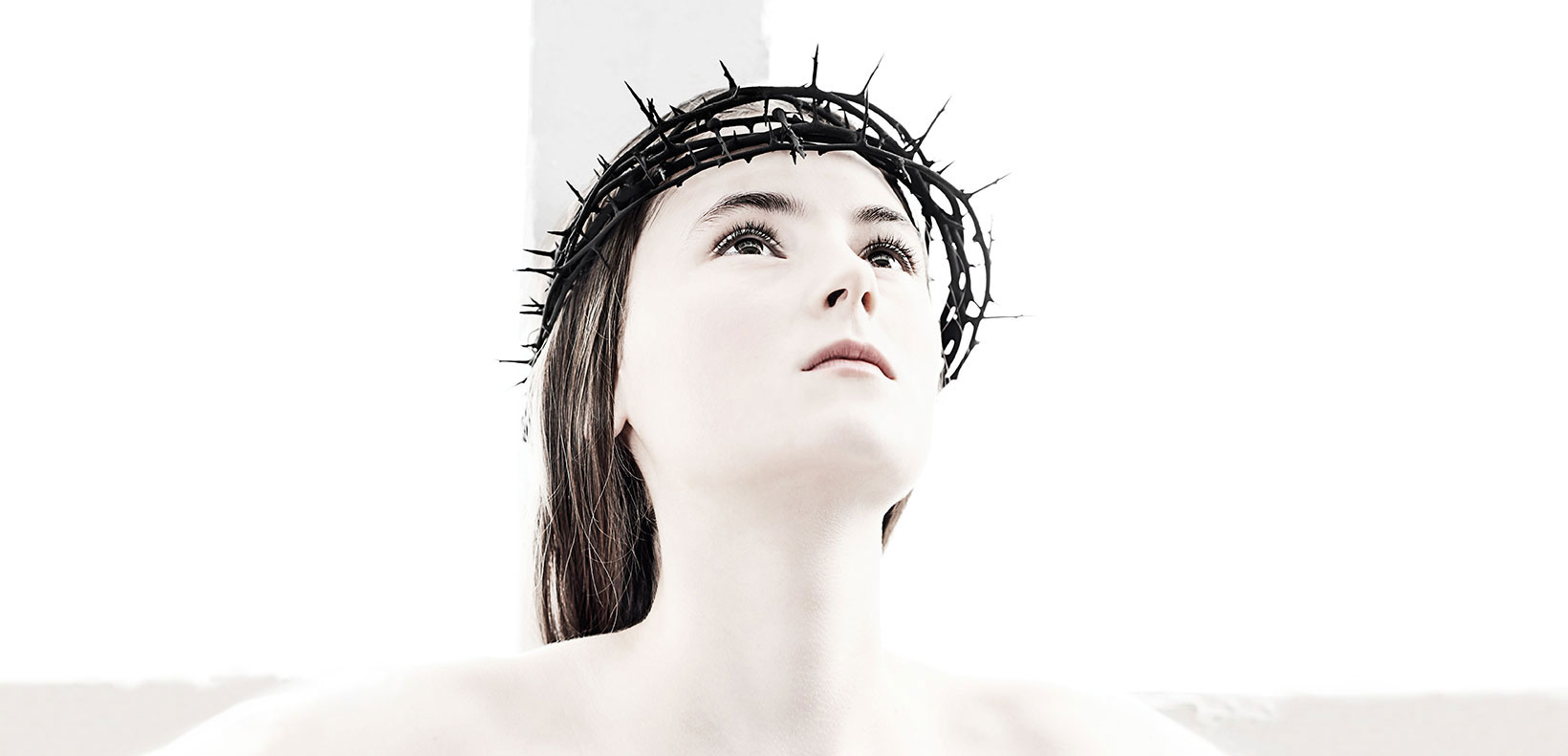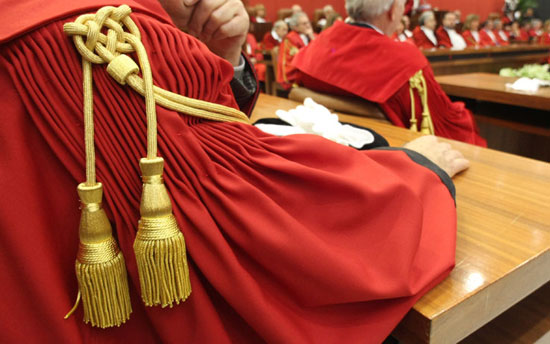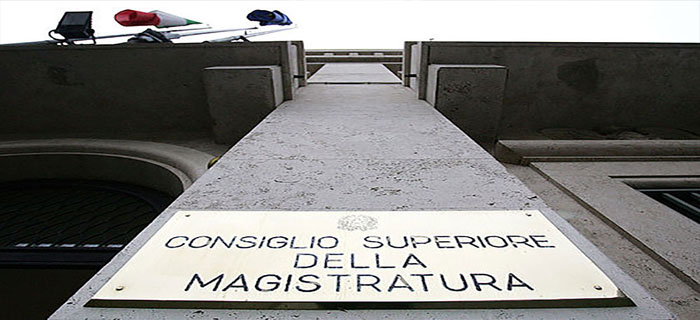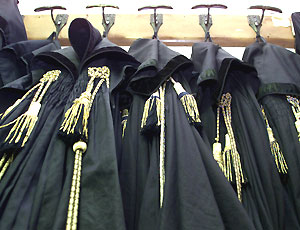
Sadness Filled With Joy
November 10, 2014
Read Dantemag Review of The Award-winning film STATIONS OF THE CROSS
November 26, 2014For a long time now the Italian stage has been dominated by the figure of former Prime Minister Silvio Berlusconi and his violent confrontation with the judiciary, in particular with some public prosecutors. Antonio Fojadelli, a recently retired judge, explains the judiciary situation that afflicts Italy’s legal system.
By Antonio Fojadelli
It is well known that there has never been any love lost between the political classes and the judiciary, and the phenomenon of recurring controversy between political leaders and certain initiatives of the judiciary has been well documented in many Western countries. The progressive expansion of the influence and power of judges in democracies is the subject of many sociological and political studies.
The current Italian situation, however, presents some peculiarities that deserve consideration. To that end, it is necessary to review briefly the path the Italian judiciary has taken and how it has evolved.
In the political and constitutional reorganization of the Kingdom of Italy, unified only in 1861, the judiciary played only a marginal role and consequently found itself considerably subordinate to the political power: the appointment of judges and their careers were largely under the influence of the government. In particular, the Chief Public Prosecutor’s Office, the driving force behind any criminal investigation, depended hierarchically on the Ministry of Justice and it was therefore natural that Italian judges tended to conform to the line the government in power was taking, even though officially the justice department was administered “in the name of the King.”

During the Fascist period, the regime attempted to make the judiciary even more subordinated to government power. However, in opposition to this stood the judiciary’s proud tradition of independence, born of a shared culture between the educated bourgeoisie and minor gentry, mostly of southern origin, from whose ranks the majority of Italian judges were recruited.
This spirit of independence was not well tolerated by the Fascist regime and it established special courts with responsibility for specific crimes and for all political offences, which, it hoped, would preempt any risk of the government and the political class being held up to judicial review.
The modern period dates from the end of the Second World War and the 1946 “plebiscite”, when it was precisely the Supreme Court that proclaimed the transition from monarchy to republic. On January 1, 1948, the new constitution came into effect, the result of a compromise between the various factions in the country: Catholic, liberal and socialist/communist.
All agreed on the need for the judiciary to be given full independence from the other two powers of state, namely the executive and the legislative, in accordance with Montesquieu’s Enlightenment model that was still the currency in the Western world then.
While this reaction against the authoritarianism of the past regime meant the various factions could agree, their differing notions of state and society made them suspect each other when it came to any potential influence any one side might exert on the judiciary by attempting to skew its workings, to the detriment of their opponents.
The peculiarity of the Italian system is the independence of the Chief Public Prosecutor from any political power, but this is offset by the obligation to prosecute without – at least officially – having any discretion in the matter.
The founding fathers were under the illusion that they were thereby avoiding any risk of discretionally “targeted” criminal investigations.
Things did not exactly turn out as they had planned.
The new figure of the judge as no longer a mere ‘”mouthpiece of the law” but as “interpreter of the law” represented groundbreaking possibilities which were understood and cultivated by the parties on the Italian left. They proceeded to don the cloak of defenders of a culture that was defined as progressive, albeit merely inspired by their very own leftist ideology.
Many judges, particularly the youngest, qualified in the post 1968 climate, saw their role in terms of interpreting constitutional aspirations (as in, for example, Article 4 of the Constitution which states that “the Republic recognizes the right of all citizens to work and will promote the conditions to effectively achieve this aim”), a role normally left to policy decisions of government. And so the so-called “ jurisprudence of objectives” established itself, which corresponded to nothing more than an attempt to achieve, through legal judgements, those objectives that politicians would not, or could not, realise. Faced with the chronic weakness of governments – which their very own constitutional arrangements had created – the judiciary acquired a growing power and consensus which, paradoxically, came about not by disregarding political mechanisms, but by following them to the letter.
One only has to think of the trend, still seen in the Italian system today, of tackling problems of great social importance by passing laws and then entrusting the judiciary with the application of their more sensitive sections. The most obvious examples are the special laws passed against Red Brigade terrorism, or the more recent laws on immigration.
Therefore, we have witnessed the “jurisdictionalisation”, as it were, of issues whose solutions should have been essentially left to the realm of politics. Thus the Italian judiciary has fully appropriated to itself those powers politicians had admittedly ceded to it and now they found themselves weakened as a result.
This staus quo was interrupted by a crucial phase: the fall of the Berlin Wall and the dissolution of the Soviet empire. Consequently, the balance between the two sides – pro West versus pro communist – that had been tacitly maintained, became much less stable.
In addition, the more or less condoned “covers” for party funding that had been elaborated through a system of so-called kickbacks, or just plain corruption, also became much less watertight.
It was the season Italians called “tangentopoli”. The entire political centre-right was nearly wiped out by innumerable criminal investigations initiated by the Milan Public Prosecutor, which then spread to many other parts of Italy.
This was the moment when the judiciary was at the height of its popularity, even if only seen from a legal viewpoint. The left-wing parties, finding themselves in a position of advantage because of these one-way enquiries, fully supported this “moralizing” work of the judiciary, and a good number of judges thought it right to identify themselves with that ideology. The enormous power of the public prosecutors, strengthened by the independence the Constitution had granted them, turned, in effect, into a political force since their legal interventions came to be seen and judged as political decisions.
This distortion of the balance between institutions was further intensified by the alliance forged between the media and certain prosecutors who were often self-promoting and keen to provide sensational headlines. These forces are still operating today and all that remains for a political class – weak and devoid of ideas – to do is to denounce the ‘”anomaly” of this power, declaring it to be, in fact, political, even though it has no electoral legitimacy. Naturally, it is chiefly the centre-right government, which was in power until recently, that has levelled this accusation.
And indeed, it is very hard to ignore the evidence and deny that there has been a singular ferocity in pursuing legal action against former prime minister Berlusconi. The choice of the means and timing of these initiatives have confirmed the objective of legally undermining his public image. Consequently his government has wasted time and energy in a vain attempt to put a stop to this, in order to defend the Prime Minister against this excessive activism on the part of certain public prosecutors.
Against this troubled backdrop of crisis, proposals are being formulated to reform the justice department; their aim is to reduce the power of the justice minister, for example, by withdrawing his right to call on the Judicial Police. Officially, the Italian left is opposed, but behind the scenes it is secretly in favour. This represents an attempt to restore that system of “checks and balances” which underpin most Western democracies. The singularity of the Italian situation, however, derives from the extraordinary expansion of the power of the judiciary and the traditional intolerance shown by the political class towards any form of judicial review. Consequently, the real problem is there is an undeniable need for a judiciary, whose members are competitively appointed and unelected, to be subject to effective forms of control and accountability. The question is how to achieve this, since the interested parties at greatest risk of having their independence compromised, are the judges and, in the specific case of Italy, even the Chief Public Prosecutor.
In a democracy, the safeguarding against any temptation the basic state powers might have to go beyond their writ to the detriment of others, is principally reliant on an instinctive and unwavering observance of constitutional rules and balances. But this can only be realised through a notion of self-restraint. That restraint, however, is premised on the existence of a strong sense of tradition and notion of the state. Unfortunately these are qualities that have been lacking – and are still lacking today – in both the political classes and the judiciary.
The latter has been seriously harmed as these preconceived ideas have permeated even the judges’ self-governing body, the CSM (Upper Council of Judges*), which has the President of the Republic at its head. This body is actually strongly influenced by various internal ideological currents. The prevailing trend is close to that associated with a certain section of the Italian left who sees issues through the lens of dogma and shuns any practical solutions, however sensible and useful, almost as if they are deemed to be intellectually inferior.
This attitude, certainly not a very liberal one, has led to an exasperating particularism , and this has, in turn, led to the erosion of the power of those judges at the head of law courts to control the actions and initiatives of their younger colleagues, many of whom are too susceptible to the attractions of fame and power. The greatest harm has been done to the public prosecutor’s office, as its united and circumspect approach has been compromised by the actions taken by individual judges within its courts.
This explains the existence of extravagant and politically-motivated inquiries – or, at any rate, they seem to be so. This could be prevented by giving the head of the public prosecutor’s office full responsibility for inquiries, but also granting him the corresponding authority to intervene and to lead proceedings.

However, the prevailing line taken by the Upper Council of Judges is to deny and undermine the legitimacy of the position held by the heads of the public prosecutors office, whenever the latter have intervened as a moderating influence against their own assistant prosecutors.
Consequently, if the Italian judiciary wishes to regain full credibility, it must engage in a serious rethink of its role, to make it more more modern and more of the people. It should stop aspiring to a political role that is beyond its writ. Conversely, politicians should consider the futility and dangers of introducing reforms to the justice system whose aim is to excessively limit judicial scrutiny.
If elected politicians in Italy really want to avoid the constant incursions the judiciary makes into politics, then they need to create a form of strict self-regulation to ensure its internal integrity. It must establish mechanisms for independent inquiries that are serious, and regulation aimed at identifying and preventing poor practice and illegal behaviour, as is the case in other European countries.
If this doesn’t happen, the world of politics will always be subject to inquiries by the judiciary, which it will continue to react to, in an ever- spiralling game of undermining each other’s legitimacy. The end result will be the discrediting of our entire country.






